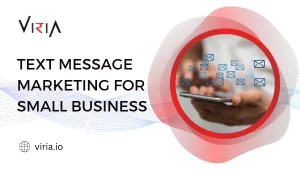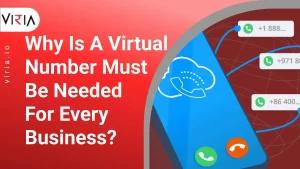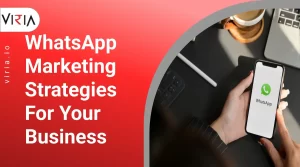In today’s competitive healthcare landscape, having a comprehensive healthcare marketing service is essential for healthcare providers to connect with patients effectively. As digital tools and communication technologies evolve, marketing has become a powerful tool to grow healthcare practices. From branding to patient engagement and CRM integration, healthcare marketing services help streamline operations while making healthcare providers more visible. This blog will explore various aspects of healthcare marketing services, focusing on effective branding strategies, the types of marketing available, and the importance of tools like IVR, CRM, and SMS solutions. Let’s get started!
What Is Healthcare Marketing?
At its core, healthcare marketing involves using a strategic combination of promotional activities and communication tools to connect healthcare providers with patients. From SEO optimization to social media outreach, content marketing, and IVR solutions, marketing helps make healthcare services more accessible and user-friendly.
Healthcare marketing services help attract new patients by promoting expertise, improving visibility, and maintaining compliance with health industry standards. Modern healthcare marketing goes beyond creating ads and websites; it focuses on developing trust, providing valuable information, and ensuring that healthcare services are easy to access for patients when needed.
Types of Marketing in Healthcare
Healthcare marketing encompasses several approaches that can be tailored to the specific needs of your practice:
- IVR Solutions: Companies like Viria offer IVR systems that automate patient communication, enabling seamless scheduling and inquiry management.
- SMS & Email Marketing: Personalized SMS reminders for appointments or follow-ups are highly effective in improving patient engagement. Email campaigns help keep patients informed about services, new treatments, and healthcare tips.
- Content Marketing: Engaging blogs, informative articles, and video content not only help educate patients but also position your practice as an expert in the field.
- Search Engine Optimization (SEO): SEO helps ensure that your website appears in search engine results when patients are looking for specific treatments, such as healthcare marketing service in Chennai.
- Social Media Marketing: Social media channels, including Facebook, Instagram, and LinkedIn, allow healthcare providers to build relationships, share informative content, and engage directly with their patient community.
Solutions for every Healthcare Business
Hospitals & Multispecialty Clinics
We create powerful digital strategies that promote core specialties, increase local visibility, and build patient trust.
- Focused SEO and reputation management bring more qualified patients.
- Automated follow-ups and patient reminders improve retention.
Diagnostic & Imaging Centers
For labs and scan centers, we drive walk-ins and online test bookings through local targeting and smart ad campaigns.
- Optimized websites and CTAs help users book with ease.
- Search campaigns attract patients searching for nearby test centers.
Private Clinics & Solo Doctors
We highlight your personal brand and medical expertise to build credibility in your community.
- Medical marketing services include content-driven local SEO.
- Engaging social media builds patient loyalty and referrals.
Wellness & Alternative Medicine
We position wellness clinics as trusted choices for natural healing through storytelling and targeted outreach.
- Long-tail SEO attracts niche audiences.
- Visual content explains treatments and builds awareness.
Pharma & Medical Equipment Suppliers
We help B2B healthcare brands generate quality leads and showcase product reliability.
- Healthcare marketing service includes LinkedIn ads, product videos, and digital catalogs.
- Email marketing drives engagement with hospitals and distributors.
Telehealth & HealthTech Startups
We scale digital platforms by increasing app downloads and user trust.
- Influencer marketing, app store optimization, and paid ads enhance visibility.
- CRO techniques improve user engagement and retention.
SMS For Healthcare
- Transforms how medical facilities communicate with patients using a fast, reliable, and cost-effective method.
- Improves patient engagement, SMS for healthcare and boosts operational efficiency.
- Sends appointment reminders and test result notifications to reduce no-show rates.
- Enhances overall patient satisfaction through timely and relevant updates.
- Ensures critical information is delivered promptly, as most text messages are read within minutes.
- Automates routine communication, reducing the burden on administrative staff.
- Supports better care coordination and real-time updates between providers and patients.
- Promotes health education and medication adherence, especially for patients with chronic conditions.
- Maintains direct, efficient communication without requiring extensive resources.

Why Is Healthcare Marketing Important?
Effective healthcare marketing service is vital for healthcare providers looking to establish themselves in a competitive market. Here’s why:
- Increases Patient Outreach: With the right marketing strategies, providers can reach more patients, ensuring their services are available to those who need them.
- Improves Patient Retention: By maintaining communication through CRM and personalized email campaigns, practices can foster loyalty and improve patient retention.
- Builds Brand Awareness: Healthcare marketing establishes your practice as a trustworthy, professional, and reliable service provider.
- Facilitates Effective Communication: Tools like Viria’s IVR and SMS solutions help automate patient communication, leading to improved patient satisfaction and a smoother appointment scheduling process.
- Enhances Local Visibility: In cities like Chennai, the demand for local healthcare marketing services is rising, and marketing strategies such as local SEO can ensure your practice appears in searches relevant to your location.
CRM in Healthcare Marketing
One of the most valuable tools in modern healthcare marketing service is the CRM in healthcare marketing. CRM (Customer Relationship Management) systems allow healthcare providers to:
- Manage and track patient interactions, appointments, and communication.
- Automate reminders for check-ups, appointments, and follow-ups, ensuring patients never miss important health visits.
- Personalize communication, helping to build trust and patient loyalty.
Viria’s CRM solutions provide healthcare providers with a seamless way to automate these processes. It not only helps with operational efficiency but also enables a more personalized approach to patient care by analyzing patient behavior and preferences.
Grow Your Medical Practice with Healthcare Digital Marketing
In today’s fast-paced digital world, the healthcare industry must evolve with modern marketing strategies to remain competitive. With healthcare digital marketing services, medical professionals can increase their visibility, engage patients, and ultimately grow their practice. Whether you run a private clinic, hospital, or healthcare center, it’s crucial to leverage the power of digital platforms to connect with your target audience. By optimizing your online presence, you can create a strong reputation, foster trust, and attract more patients.
Healthcare digital marketing services include a variety of strategies tailored to the medical industry. These services can help you:
- Build and manage an effective online presence through SEO, content marketing, and social media engagement.
- Improve your website’s user experience and search engine rankings to ensure patients find you easily.
- Utilize paid advertising campaigns such as PPC and Google Ads to reach potential patients quickly.
- Monitor online reviews and manage your reputation to foster trust and credibility among your patients.
The world of digital marketing in healthcare is vast, and having the right strategy can transform your practice. With the assistance of healthcare digital marketing services, you can access powerful tools that align with your practice’s specific goals. Reach out to new patients, educate them, and enhance their overall experience.
Partner with the Experts in Healthcare Digital Marketing
Choosing the right partner for your healthcare marketing needs is crucial for success. When you choose Arvis Digital, you’re working with an agency that is fully dedicated to your practice’s growth. Here’s how we help:
- Build a Strong Online Presence: With healthcare digital marketing services, we help create a comprehensive digital strategy that strengthens your practice’s online presence. We ensure your website, social media profiles, and online ads align with your brand and patient expectations.
- Reach Your Target Audience: Our team understands that healthcare marketing isn’t a one-size-fits-all solution. By identifying your target market for healthcare services, we ensure your marketing efforts are aimed directly at individuals who will benefit from your services.
- Expert Marketing Strategy Implementation: Whether it’s improving local SEO, creating engaging content, or running targeted paid campaigns, our expertise ensures the strategies we implement are designed to achieve maximum impact.
- Reputation Management: Managing your online reputation is crucial. With healthcare digital marketing services, we offer review monitoring, reputation management, and patient feedback collection to foster trust and establish your practice as a reputable healthcare provider.
- Patient Engagement: We believe in building long-term relationships with your patients. Through personalized email campaigns, social media interaction, and informative content, we ensure your patients stay informed and engaged, which leads to better patient retention.
Medical Marketing Services
Medical marketing services go beyond digital marketing to create a holistic marketing strategy that covers multiple touchpoints:
- IVR & SMS Solutions: Viria’s automated systems manage patient calls, inquiries, and scheduling, allowing practices to focus on providing quality care.
- Content Marketing: By creating informative content such as blogs, newsletters, and videos, healthcare providers can establish their authority in their field.
- Social Media Engagement: Practices can engage directly with their patient base, share updates, and foster patient relationships on platforms like Facebook, Instagram, and LinkedIn.
- Paid Advertising (PPC): Paid online ads allow you to target specific patient demographics, promoting your practice to those actively searching for the services you offer.
By integrating CRM with IVR and SMS solutions, medical practices can create seamless and effective marketing strategies, reaching patients with the right message at the right time.
Benefits of Healthcare Marketing
Here are some of the key benefits that a solid healthcare marketing service can provide:
- Increased Visibility: Marketing ensures that your practice is easily accessible to potential patients, whether through SEO, social media, or online ads.
- Improved Patient Engagement: Effective use of CRM tools, SMS campaigns, and personalized content helps keep your patients engaged and informed.
- Cost Efficiency: Digital marketing strategies, such as SEO and social media marketing, offer a cost-effective way to reach a large audience.
- Stronger Reputation: Marketing efforts build trust, highlight patient success stories, and showcase positive reviews, which improves your practice’s reputation.
Key Takeaways:
- A comprehensive healthcare marketing service helps healthcare providers reach more patients, build a stronger online presence, and improve patient communication.
- CRM in healthcare marketing enables personalized patient interaction and automates processes like appointment reminders and follow-ups.
- Viria’s IVR and SMS solutions streamline communication, making it easier for patients to connect with healthcare providers.
- In competitive markets like Chennai, healthcare marketing service is essential for local visibility and patient acquisition.
- Medical marketing services offer an integrated approach that includes content marketing, paid ads, and patient engagement strategies.
Conclusion
In today’s fast-paced healthcare industry, a well-executed healthcare marketing service can make all the difference. By incorporating modern tools like CRM, IVR, and SMS solutions, healthcare providers can enhance their communication with patients, improve operational efficiency, and grow their practice. Whether you’re in Chennai or any other region, implementing a strategic healthcare marketing plan is key to your practice’s success. Partner with Viria to take your healthcare marketing to the next level, and start seeing the benefits today.




